|
Books Should Be Free Loyal Books Free Public Domain Audiobooks & eBook Downloads |
|
|
Books Should Be Free Loyal Books Free Public Domain Audiobooks & eBook Downloads |
|
History Books |
|---|
|
Book type:
Sort by:
View by:
|
By: Giacomo Casanova (1725-1798) | |
|---|---|
 Memoirs of Casanova — Volume 01: Childhood
Memoirs of Casanova — Volume 01: Childhood
| |
 Quotes and Images from the Memoirs of Jacques Casanova de Seingalt
Quotes and Images from the Memoirs of Jacques Casanova de Seingalt
| |
By: Elizabeth Davis Bancroft (1803-1886) | |
|---|---|
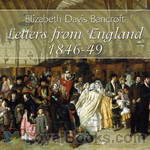 Letters from England, 1846-1849
Letters from England, 1846-1849
Elizabeth Bancroft went to England with her husband, historian George Bancroft, for three of the most dynamicy years in European hstory. As Ambassador to England from the United States, George moved in the highest circles. In his wife’s letters to their sons, her uncle, her brother, and Mrs. Polk (the President’s wife), we see glimpses not only of early Victorian English life, but also of Queen Victoria herself! Mrs. Bancroft speaks of dinners with Benjamin Disraeli, visits to Wordsworth, weekends in the country with Louis Napolean and Sir Robert Peel with such matter of fact aplomb that one cannot help being impressed. | |
By: Robert Michael Ballantyne (1825-1894) | |
|---|---|
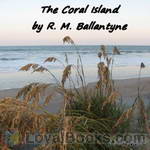 The Coral Island - A Tale of the Pacific Ocean
The Coral Island - A Tale of the Pacific Ocean
Ralph Rover is a traveler at heart, and has always dreamed of shipping out to the South Seas islands. He finally convinces his aging parents to let him go and find his way in the world. But the islands that Ralph finds are not as idyllic as in his dreams. Shipwrecked on a large, uninhabited island, Ralph and his fellow survivors, Jim and Peterkin, discover a world of hostile natives and villainous pirates. Danger, high adventure, and wonders of the sea greet them at every turn. When all seems lost, they find help from an unexpected source. | |
By: James Norman Hall | |
|---|---|
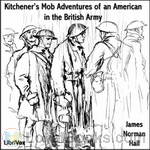 Kitchener's Mob Adventures of an American in the British Army
Kitchener's Mob Adventures of an American in the British Army
“Pvt Ryan”, “Platoon”, “A Soldier’s Home”, “Kitchener’s Mob”. These aren’t happy stories, they are about the experience of War. War at different times, and although modern warfare may be more sanitized, the adventure, the horror, the emotions don’t change. James Norman Hall has been there. He “Saw the Elephant”, and his portrayal of his WWI experience is a tribute to those ordinary people who do such extraordinary things. Those who have served will identify with at least some part if not all of this book, be it the rigors of training, the camaraderie, or possibly those memories that try as you may, you can never make go away... | |
By: Princess Der Ling | |
|---|---|
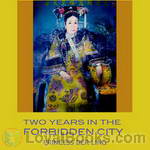 Two Years in the Forbidden City
Two Years in the Forbidden City
THE author of the following narrative has peculiar qualifications for her task. She is a daughter of Lord Yu Keng, a member of the Manchu White Banner Corps, and one of the most advanced and progressive Chinese officials of his generation. she became First Lady-in-Waiting to the Empress Dowager, and while serving at the Court in that capacity she received the impressions which provide the subject-matter of this book. Her opportunity to observe and estimate the characteristics of the remarkable woman who ruled China for so long was unique, and her narrative throws a new light on one of the most extraordinary personalities of modern times... | |
By: John Greenleaf Whittier (1807-1892) | |
|---|---|
 Poems in Wartime From Volume III., the Works of Whittier: Anti-Slavery Poems and Songs of Labor and Reform
Poems in Wartime From Volume III., the Works of Whittier: Anti-Slavery Poems and Songs of Labor and Reform
| |
By: Gaius Suetonius Tranquillus (c75 - c160 AD) | |
|---|---|
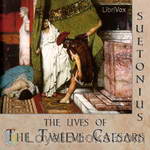 The Lives of the Twelve Caesars
The Lives of the Twelve Caesars
The Twelve Caesars is a set of twelve biographies of Julius Caesar and the first 11 emperors of the Roman Empire. The work was written in 121 during the reign of the emperor Hadrian, while Suetonius was Hadrian’s personal secretary. On the Life of the Caesars concentrates on the acts and personalities of the Julio-Claudians and their immediate successors. Together with Tacitus’ Annals, this work is a major source for the historical details in Robert Graves’ novels “I Claudius” and “Claudius the God”. | |
By: James Otis (1848-1912) | |
|---|---|
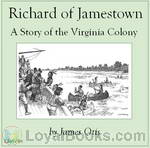 Richard of Jamestown: A Story of the Virginia Colony
Richard of Jamestown: A Story of the Virginia Colony
Richard of Jamestown by James Otis was written for children with the purpose to show them the daily home life of the Virginia colonists. It is written from the viewpoint of a young boy named Richard Mutton. | |
 The Boys of '98
The Boys of '98
| |
By: Louis Hémon (1880-1913) | |
|---|---|
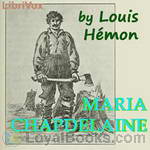 Maria Chapdelaine
Maria Chapdelaine
Maria Chapdelaine is one of the most famous French Canadian novels. It is the love story of Maria Chapdelaine, daughter of a peasant family in the Saguenay-Lac-St-Jean region of Quebec, in the 1900s. It is often seen as an allegory of the French Canadian people, describing simple joys and great tragedies, the bonds of family, the importance of faith, and the strength of body and spirit needed to endure the harshness of life in Canada’s northern wilderness. | |
By: Walter Besant (1836-1901) | |
|---|---|
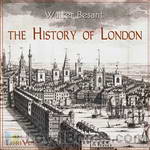 The History of London
The History of London
Walter Besant was a novelist and historian, and his topographical and historical writings, ranging from prehistoric times to the nineteenth century, were probably best known through the detailed 10-volume Survey of London published after his death. This earlier single volume covers, in less depth, the whole period from prehistory until the 19th century. The book appears originally to have been written for boys, and, indeed, the chapters are called “Lessons”. However, it is a very readable history and provides a fascinating insight into both London’s past and the government of the City at the time the book was written (1894). | |
By: Thomas Carlyle | |
|---|---|
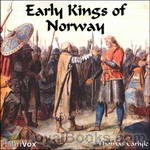 Early Kings of Norway
Early Kings of Norway
“The Icelanders, in their long winter, had a great habit of writing; and were, and still are, excellent in penmanship. It is to this fact, that any little history there is of the Norse Kings and their old tragedies, crimes and heroisms, is almost all due. The Icelanders, it seems, not only made beautiful letters on their paper or parchment, but were laudably observant and desirous of accuracy; and have left us such a collection of narratives (Sagas, literally “Says”) as, for quantity and quality, is unexampled among rude nations... | |
 Latter-Day Pamphlets
Latter-Day Pamphlets
| |
 History of Friedrich II of Prussia
History of Friedrich II of Prussia
| |
By: General Sir John Miller Adye (1819-1900) | |
|---|---|
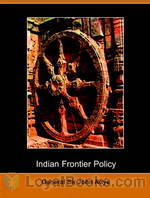 Indian Frontier Policy, an Historical Sketch
Indian Frontier Policy, an Historical Sketch
“The subject of our policy on the North-West frontier of India is one of great importance, as affecting the general welfare of our Eastern Empire, and is specially interesting at the present time, when military operations on a considerable scale are being conducted against a combination of the independent tribes along the frontier. It must be understood that the present condition of affairs is no mere sudden outbreak on the part of our turbulent neighbours. Its causes lie far deeper, and are the consequences of events in bygone years”. (From the author’s Preface, 1897). | |
By: Leander Stillwell (1843-1934) | |
|---|---|
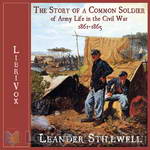 The Story of a Common Soldier of Army Life in the Civil War, 1861-1865
The Story of a Common Soldier of Army Life in the Civil War, 1861-1865
Leander Stillwell was an 18-year-old Illinois farm boy, living with his family in a log cabin, when the U.S. Civil War broke out. Stillwell felt a duty “to help save the Nation;” but, as with many other young men, his Patriotism was tinged with bravura: “the idea of staying at home and turning over senseless clods on the farm with the cannon thundering so close at hand . . . was simply intolerable.” Stillwell volunteered for the 61st Illinois Infantry in January 1861. His youthful enthusiasm for the soldier’s life was soon tempered at Shiloh, where he first “saw a gun fired in anger,” and “saw a man die a violent death... | |
By: Roald Amundsen (1872-1928) | |
|---|---|
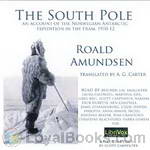 The South Pole; an account of the Norwegian Antarctic expedition in the Fram, 1910-12
The South Pole; an account of the Norwegian Antarctic expedition in the Fram, 1910-12
In contrast to Scott’s South Pole expedition, Amundsen’s expedition benefited from good equipment, appropriate clothing, and a fundamentally different primary task (Amundsen did no surveying on his route south and is known to have taken only two photographs) Amundsen had a better understanding of dogs and their handling, and he used of skis more effectively. He pioneered an entirely new route to the Pole and they returned. In Amundsen’s own words: “Victory awaits him who has everything in order — luck, people call it... | |
By: Thomas Wentworth Higginson | |
|---|---|
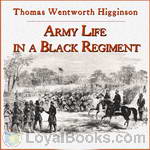 Army Life in a Black Regiment
Army Life in a Black Regiment
These pages record some of the adventures of the First South Carolina Volunteers, the first slave regiment mustered into the service of the United States during the late civil war. It was, indeed, the first colored regiment of any kind so mustered, except a portion of the troops raised by Major-General Butler at New Orleans. These scarcely belonged to the same class, however, being recruited from the free colored population of that city, a comparatively self-reliant and educated race. (From the text) | |
 Oldport Days
Oldport Days
| |
By: Booker T. Washington (1856-1915) | |
|---|---|
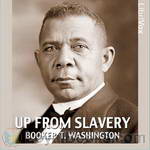 Up From Slavery
Up From Slavery
Up From Slavery is the 1901 autobiography of Booker T. Washington detailing his slow and steady rise from a slave child during the Civil War, to the difficulties and obstacles he overcame to get an education at the new Hampton University, to his work establishing vocational schools—most notably the Tuskegee Institute in Alabama—to help black people and other disadvantaged minorities learn useful, marketable skills and work to pull themselves, as a race, up by the bootstraps. He reflects on the generosity of both teachers and philanthropists who helped in educating blacks and native Americans... | |
By: John Burroughs (1837-1921) | |
|---|---|
 Birds and Bees, Sharp Eyes, and Other Papers
Birds and Bees, Sharp Eyes, and Other Papers
Probably no other American writer has a greater sympathy with, and a keener enjoyment of, country life in all its phases—farming, camping, fishing, walking—than has John Burroughs. His books are redolent of the soil, and have such "freshness and primal sweetness," that we need not be told that the pleasure he gets from his walks and excursions is by no means over when he steps inside his doors again. As he tells us on more than one occasion, he finds he can get much more out of his outdoor experiences by thinking them over, and writing them out afterwards... | |
 Under the Maples
Under the Maples
| |
 Ways of Nature
Ways of Nature
| |
 Winter Sunshine
Winter Sunshine
| |
 Wake-Robin
Wake-Robin
| |
 Camping with President Roosevelt
Camping with President Roosevelt
| |
 The Wit of a Duck and Other Papers
The Wit of a Duck and Other Papers
| |
By: Allan Fea (1860-1956) | |
|---|---|
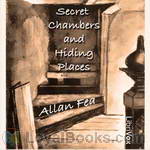 Secret Chambers and Hiding Places
Secret Chambers and Hiding Places
“Secret Chambers and Hiding Places” is a collection of concealments and their uses, almost all within England, although a very few passages and chambers in continental Europe are mentioned, Jacobite hidey holes in Scotland, while the final chapter of the book covers Bonnie Prince Charlie’s wanderings around Scotland, among caves and other hiding places. Most chapters are devoted to historical events; such as the the seventeenth century persecution of roman catholics (with many large houses having specially constructed “priests’ holes”), or various unpopular monarchs and their hiding places... | |
By: Erskine Childers (1870-1922) | |
|---|---|
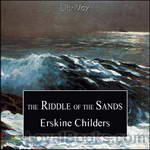 The Riddle of the Sands
The Riddle of the Sands
Containing many realistic details based on Childers’ own sailing trips along the German North Sea coast, the book is the retelling of a yachting expedition in the early 20th century combined with an adventurous spy story. It was one of the early invasion novels which predicted war with Germany and called for British preparedness. The plot involves the uncovering of secret German preparations for an invasion of the United Kingdom. It is often called the first modern spy novel, although others are as well, it was certainly very influential in the genre and for its time... | |
By: R. Talbot Kelly (1861-1934) | |
|---|---|
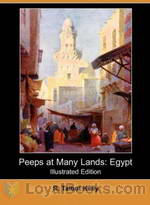 Peeps at Many Lands: Egypt
Peeps at Many Lands: Egypt
A short travelogue of Egypt, this book was written as part of an early 20th century series of travelogues on exotic destinations. | |
By: Josephus | |
|---|---|
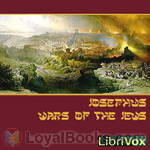 The Wars of the Jews
The Wars of the Jews
The Wars of the Jews (or The History of the Destruction of Jerusalem, or as it usually appears in modern English translations, The Jewish War – original title: Phlauiou Iôsêpou historia Ioudaïkou polemou pros Rhômaious bibliona) is a book written by the 1st century Jewish historian Josephus. It is a description of Jewish history from the capture of Jerusalem by the Seleucid ruler Antiochus IV Epiphanes in 164 BC to the fall and destruction of Jerusalem in the First Jewish-Roman War in AD 70... | |
By: Grant Allen (1848-1899) | |
|---|---|
 Anglo-Saxon Britain
Anglo-Saxon Britain
| |
By: G. K. Chesterton (1874-1936) | |
|---|---|
 The Victorian Age in Literature
The Victorian Age in Literature
| |
By: Benvenuto Cellini ((1500-1571)) | |
|---|---|
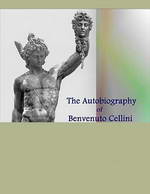 The Autobiography of Benvenuto Cellini
The Autobiography of Benvenuto Cellini
Cellini’s autobiographical memoirs, which he began writing in Florence in 1558, give a detailed account of his singular career, as well as his loves, hatreds, passions, and delights, written in an energetic, direct, and racy style. They show a great self-regard and self-assertion, sometimes running into extravagances which are impossible to credit. He even writes in a complacent way of how he contemplated his murders before carrying them out. He writes of his time in Paris: Parts of his tale recount... | |
By: W. M. Flinders Petrie | |
|---|---|
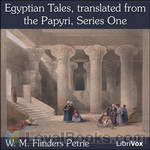 Egyptian Tales, translated from the Papyri, Series One
Egyptian Tales, translated from the Papyri, Series One
Brief, and in some cases incomplete, stories of magic from ancient Egypt. | |
By: Niccolò Machiavelli (1469-1527) | |
|---|---|
 Machiavelli, Volume I
Machiavelli, Volume I
| |
By: George William Russell (1867-1935) | |
|---|---|
 The National Being Some Thoughts on an Irish Polity
The National Being Some Thoughts on an Irish Polity
| |
By: Winston Churchill (1874-1965) | |
|---|---|
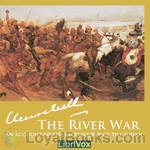 The River War: An Account of the Reconquest of the Sudan
The River War: An Account of the Reconquest of the Sudan
When the self-proclaimed Mahdi (“Guided One”) gathered Islamic forces and kicked the Anglo-Egyptians out of the Sudan, he unleashed a backlash. With the image of the heroic General Charles Gordon dying at Khartoum, the British public was ready to support a war to reclaim the lost territories. And when the political time was right, a British-Egyptian-Sudanese expedition led by the redoubtable Herbert Kitchener set out to do just that.The river involved was the Nile. For millennia, its annual flood has made habitable a slender strip, though hundreds of miles of deserts, between its tributaries and its delta... | |
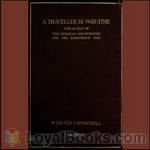 A Traveller in War-Time
A Traveller in War-Time
This is a collection of a series of journalistic articles written during his travels throughout WWI era Europe that Churchill — the American author, not the famed British statesman — published in 1917; the book version came out in 1918. The writing is sharp, straightforward, and rarely sentimental, with loads of local color and occasional humor. | |
 The Crisis
The Crisis
| |
 The Story of the Malakand Field Force An Episode of Frontier War
The Story of the Malakand Field Force An Episode of Frontier War
| |
 Liberalism and the Social Problem
Liberalism and the Social Problem
| |
 Richard Carvel
Richard Carvel
| |
 An essay on the American contribution and the democratic idea
An essay on the American contribution and the democratic idea
| |
By: Noah Davis (b. 1804) | |
|---|---|
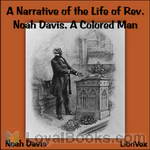 A Narrative of the Life of Rev. Noah Davis, A Colored Man
A Narrative of the Life of Rev. Noah Davis, A Colored Man
The object of the writer, in preparing this account of himself, is to RAISE SUFFICIENT MEANS TO FREE HIS LAST TWO CHILDREN FROM SLAVERY. Having already, within twelve years past, purchased himself, his wife, and five of his children, at a cost, altogether, of over four thousand dollars, he now earnestly desires a humane and Christian public to AID HIM IN THE SALE OF THIS BOOK, for the purpose of finishing the task in which he has so long and anxiously labored. God has blessed him in an extraordinary... | |
By: Henri Bergson (1859-1941) | |
|---|---|
 The Meaning of the War Life & Matter in Conflict
The Meaning of the War Life & Matter in Conflict
| |
By: Harrison Ainsworth | |
|---|---|
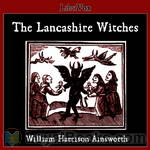 The Lancashire Witches
The Lancashire Witches
The Lancashire Witches is a highly fictionalised account of the activities of the notorious witches Demdike, Chattox and Alice Nutter who, together with others terrorised the district of Lancashire around Pendle Hill and the Forest of Bowland during the early seventeenth century. The witches named in the book were real enough, if not as witches then as people. Ainsworth, in his story brings in the dissolution of Whalley Abbey and the historic families of Assheton, Braddyll and Nowell and takes us through to the final trial and execution at Lancaster Castle in 1612. (Summary by Andy Minter) | |
By: Marcus Tullius Cicero | |
|---|---|
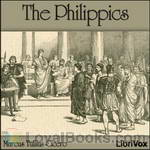 The Philippics
The Philippics
A philippic is a fiery, damning speech delivered to condemn a particular political actor. The term originates with Demosthenes, who delivered an attack on Philip II of Macedon in the 4th century BCE.Cicero consciously modeled his own attacks on Mark Antony, in 44 BC and 43 BC, on Demosthenes’s speeches, and if the correspondence between M. Brutus and Cicero are genuine [ad Brut. ii 3.4, ii 4.2], at least the fifth and seventh speeches were referred to as the Philippics in Cicero’s time. They were also called the Antonian Orations by Aulus Gellius... | |
By: Lytton Strachey (1880-1932) | |
|---|---|
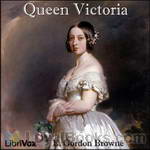 Queen Victoria
Queen Victoria
Lytton Strachey’s first great success, and his most famous achievement, was “Eminent Victorians” (1918), a collection of four short biographies of Victorian heroes. With a dry wit, he exposed the human failings of his subjects and what he saw as the hypocrisy at the centre of Victorian morality. This work was followed in the same style by “Queen Victoria” (1921). | |
By: Giles Lytton Strachey (1880-1932) | |
|---|---|
 Eminent Victorians
Eminent Victorians
On Modern Library's list of 100 Best Non-Fiction books, "Eminent Victorians" marked an epoch in the art of biography; it also helped to crack the old myths of high Victorianism and to usher in a new spirit by which chauvinism, hypocrisy and the stiff upper lip were debunked. In it, Strachey cleverly exposes the self-seeking ambitions of Cardinal Manning and the manipulative, neurotic Florence Nightingale; and in his essays on Dr Arnold and General Gordon, his quarries are not only his subjects but also the public-school system and the whole structure of nineteenth-century liberal values. | |
By: Irwin Leslie Gordon (1888-1954) | |
|---|---|
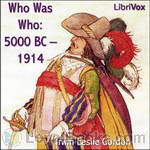 Who Was Who: 5000 BC – 1914
Who Was Who: 5000 BC – 1914
A short, humorous biography of famous people from 5000 BC to 1914. — S. McGaughey From the Introduction, “The editor begs leave to inform the public that only persons who can produce proper evidence of their demise will be admitted to Who Was Who. Press Agent notices or complimentary comments are absolutely excluded, and those offering to pay for the insertion of names will be prosecuted. As persons become eligible they will be included without solicitation, while the pages will be expurgated of others should good luck warrant.” | |
By: Marcel Dupont (1879-1964) | |
|---|---|
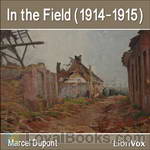 In the Field (1914-1915)
In the Field (1914-1915)
I have merely tried to make a written record of some of the hours I have lived through during the course of this war. A modest Lieutenant of Chasseurs, I cannot claim to form any opinion as to the operations which have been carried out for the last nine months on an immense front. I only speak of things I have seen with my own eyes, in the little corner of the battlefield occupied by my regiment. | |
By: Samuel Johnson (1709-1784) | |
|---|---|
 Johnson's Lives of the Poets
Johnson's Lives of the Poets
| |
 Lives of the English Poets : Waller, Milton, Cowley
Lives of the English Poets : Waller, Milton, Cowley
| |
 Lives of the English Poets : Prior, Congreve, Blackmore, Pope
Lives of the English Poets : Prior, Congreve, Blackmore, Pope
| |
By: Christopher Marlowe (1564-1593) | |
|---|---|
 Edward II
Edward II
Christopher Marlowe's Elizabethan tragedy focuses on the downfall of King Edward II, whose love for his favorite courtier, Piers Gaveston, leads to rebellion. | |
By: George Hodges (1856-1919) | |
|---|---|
 William Penn
William Penn
| |
By: Lawrence Beesley (1877-1967) | |
|---|---|
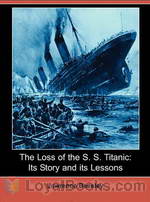 The Loss of the S. S. Titanic
The Loss of the S. S. Titanic
This is a 1st hand account written by a survivor of the Titanic about that fateful night and the events leading up to it as well as the events that followed its sinking. | |
By: Henry A. Beers | |
|---|---|
 A Brief History of English and American Literature
A Brief History of English and American Literature
Henry Augustin Beers (1847-?), native of Buffalo, NY and professor of English at Yale, with the help of John Fletcher Hurst (1834-1903), Methodist bishop and first Chancellor of American University, has written a sweeping thousand 900 year history of English literature, up to the end of the 19th century. Although at times biased and sometimes misguided (as when he dismisses Mark Twain as a humorist noteworthy in his time but not for the ages), his research is sound and his criticism is interesting and quite often very balanced... | |